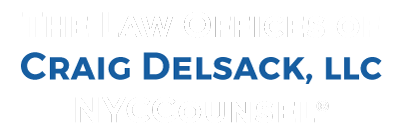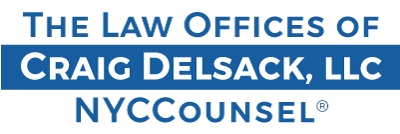Top Legal Mistakes New York Startups Make — And How to Avoid Them

Unfortunately, many startup businesses make errors as they launch their business. There are many legal mistakes new businesses should be aware of to avoid. This article will discuss the top legal mistakes New York startup businesses make and how to avoid them. Whether failing to register your new entity, neglecting to properly document your agreements or protecting your intellectual property, below are some things not to do so you can avoid legal issues.
Choosing the Wrong Business Structure
When choosing a business structure, there is a lot more to think about than simply whether “LLC” or “Corp.” looks better next to the business name. There are many other considerations, such as personal liability and tax implications. We discuss this further in this article.
To help ensure the startup business has the proper protection, we recommend consulting with a New York business attorney. They can help determine which entity best suits the goals of the business as well as those of the business owners. This helps you ensure that the business and the owner(s) are as protected as much as possible. Running a startup is difficult enough! Don’t add further complications by avoiding this step.
Failing to Register The Business
Choosing the right business structure is an important part of starting a business. Registering the business is critical. Failing to do so means your business has no legal standing, resulting in not only legal consequences, but also personal financial consequences as well. All of which can result in your company’s transactions from being enforceable and the business owners having unlimited personal liability.
Additionally, even if your startup was initially formed outside of New York (e.g., a foreign business to New York state), if it is not get registered inside of New York, then it does not have the legal “standing” necessary to bring a lawsuit in the NY state courts if need be (although failing to qualify as a foreign entity has no effect on the business being sued as a defendant).
Misclassifying Employees
There are strict guidelines in New York concerning the differences between employees and independent contractors. By misclassifying workers, the protections afforded to the worker (such as overtime pay protections, minimum wage, and other matters covered by the Fair Labor Standards Act) may be altered. As such, employers can face lawsuits resulting in penalties (and personal liability to the owners).
To limit the occurrence of misclassification, Federal regulations are published (29 CFR Part 795) for employers and workers to use as a reference. See our article on how to determine whether your New York business has employees or independent contractors to avoid misclassifying your workers and exposing you and your business to penalties and legal consequences.
When determining a worker’s status as an employee or independent contractor, the startup must consider the relationship between the business and the individual. Employer-employee relationships can include factors such as if an employer sets the work hours and pay rate, provides the facilities/tools/supplies to do the expected tasks, and the service provider’s independence (among other factors).
Not Protecting Intellectual Property (IP) Adequately
We’ve discussed IP protection in the past, and we will continue to discuss, it as it is extremely important to the value of the startup business. Startups often assume they can ignore protecting their logo, media content, programming code, branding elements, and other IP until the startup is more established. By delaying this step, startup businesses are left vulnerable to brand dilutions, copyright infringement and IP theft (or lack of ownership). In industries that revolve around creative projects and innovative technology, failing to properly protect your IP and trade secrets can be career-ending or worse, a death-nail to your business.
Startups can protect their intellectual property (IP) by trademarking their brand, patenting innovations, securing copyrights for creative expressions, and properly protecting trade secrets. This should be done as early as possible to help you ensure optimal protection. Written agreements between shareholders, employees, contractors and other business partners should be entered into to help you ensure the business’s IP and trade secrets remain with the company.
Non-Compliance with Regulations
Not only in New York, but federally and in other states (and globally if your business has cross-border implications), certain industries have regulations concerning permits, licenses, and other compliance protocols. Disregarding these can not only result in fines, but can be a significant detriment to business operations. A New York business attorney who is understands the industry-specific regulations can aid a New York startup from not following the proper protocols.
Neglecting Contracts and Agreements
Contracts and agreements are entered into for a reason! They evidence a “meeting of the minds” and are critical to protecting the owners, partners, and employees of every company, even startups. Businesses and individuals should “paper their handshakes” to clearly set forth the parties expectations.
There should be clear, written agreements that define each person’s role in the business. This includes defining each person’s rights and obligations, and applicable employment contracts, service agreements, IP ownership agreements, and non-disclosure agreements (NDAs, see my video discussing when you need an NDA), to name a few.
Ignoring Tax Obligations
Tax obligations apply to everyone to fulfill; individuals and businesses alike. Startup businesses need to obtain a taxpayer identification number and apply for the appropriate tax certificates and also must file the appropriate tax returns on time.
It is important to understand the applicable tax obligations on a case-by-case basis to be fully compliant. The New York Department of Taxation and Finance offers numerous resources to help guide New York businesses through what is involved in fulfilling these requirements.
Lack of Clear Website Policies
These days, it would be rare for a startup business to not have a website. It is a key part of attracting potential clients and is necessary for running any business. A startup’s website must feature clear terms of service and privacy policies that set the appropriate expectations for the site’s users. This also includes a business’s compliance with data privacy laws to prevent possible lawsuits.
Failing to Seek Legal Advice
One of the top legal mistakes startups make is not seeking a New York business lawyer’s legal advice from the beginning. Doing so is one of the best ways to protect any business! This helps you ensure the startup business is compliant with the relevant laws that apply to specific components of the business and the business structure.
These matters are important at the start of the business. However, the need to have a business lawyer on the startup’s side does not end here. Retaining legal counsel who can help identify future legal issues throughout the lifespan of the business provides security. Especially, during periods of growth.
Contact NYC Counsel to schedule a consultation with an experienced New York startup attorney today!
In order for you to adhere to the legal requirements needed for sustainable growth, allow us to help lay the proper groundwork today. Our business pragmatic legal guidance can make all the difference in helping you avoid the legal mistakes New York startups tend to make.
This post is for informational purposes only. If you have any questions or need legal advice, call Craig Delsack, a New York Business attorney today! We can be reached at 212-688-8944 for a no-fee, no-obligation initial telephone consultation. Or, complete the form on this page..

